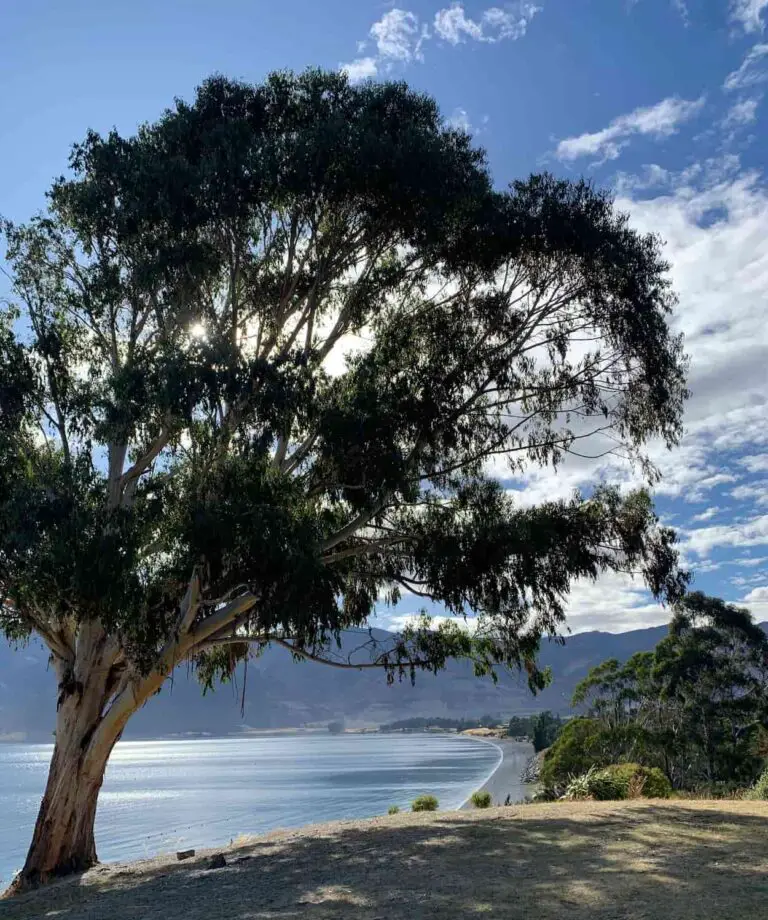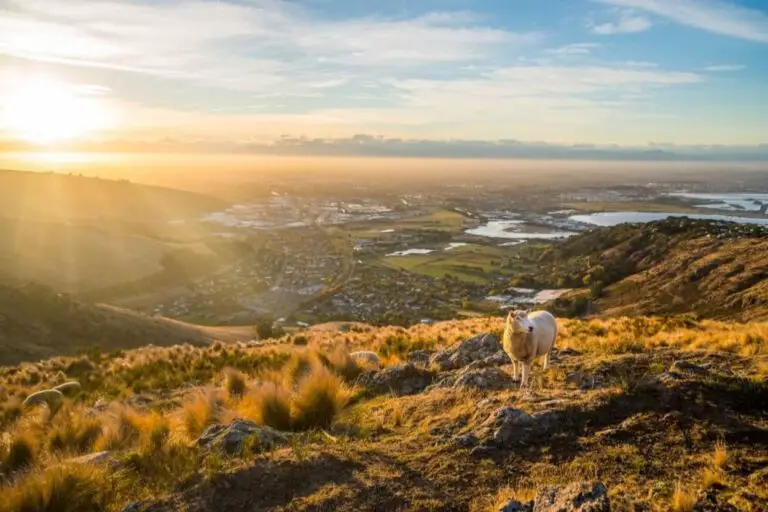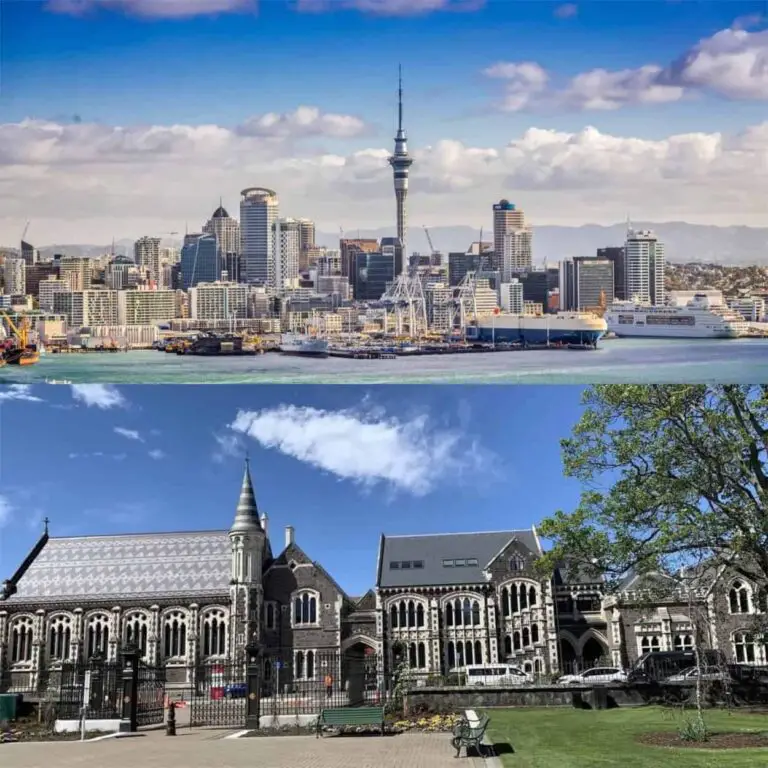23 Pros and Cons of Living in Wellington That You Must Know
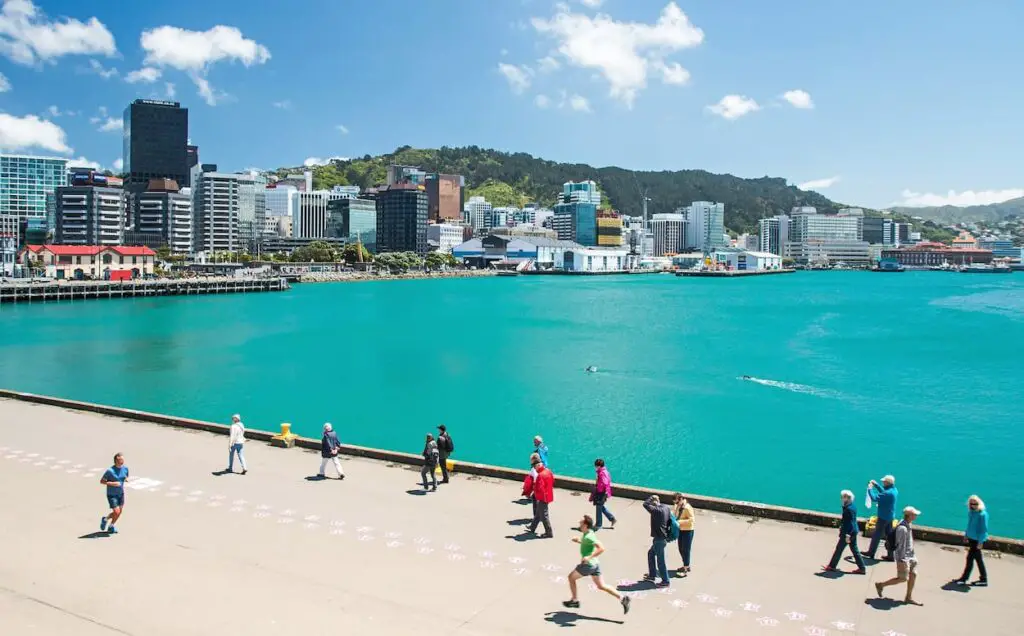
Wellington is a small hidden gem capital. Located on impressive hills and the coast, it’s a young, energetic city filled with cafes, bars, clubs, and restaurants. Are you thinking of moving here? Then this article is a must-read!
Pros of living in Wellington
- High salaries
- Diversity in nature and landscape
- Eye-pleasing town
- A place to express yourself
- Developed public transport
- Location – easy access to South Island
- Great for outdoors
- Vibrant coffee culture
- Culture, events, and things to do
- A young city with students and professionals
- Compact city
- Plenty of hospitals, schools, and universities
- Job and career opportunities
Cons of living in Wellington
- High house prices
- A lot of rain and wind
- High cost of living
- Terrible public transport
- Hustle of the big city
- Parking difficulties
- Lots of traffic
- Poor housing
- Social issues and begging
- No feel of the true New Zealand
- Earthquakes
Wellington is the capital city of New Zealand, with a population of about 200,000 in the urban area. That’s a very small capital, to be frank. Nonetheless, Wellington is home to the Parliament, several government departments, two large universities, and most embassies.
To balance the serious part of the city, Wellington is home to tons of trendy cafes, bars, and restaurants, as well as galleries and museums. It offers a great lifestyle for everyone, from students and busy professionals to families.
If you are certain about moving to Wellington, check out this post to learn what suburb suits you the best.
1. High salaries
Wellington and Auckland are homes to the highest salaries across the board.
According to the largest online job board in New Zealand, Seek.co.nz, Wellington topped the list as the highest-paying region in New Zealand with an average advertised salary of $82,407.
At the same time, the average salary across the country is just about $58,000. Below are the average wages in Wellington across various positions.
| Job title | Salary range | Average |
|---|---|---|
| Software developer | NZ$53k – NZ$98k | NZ$68,870 |
| Executive assistant | NZ$55k – NZ$79k | NZ$68,144 |
| Operations manager | NZ$56k – NZ$129k | NZ$81,342 |
| Project manager | NZ$63k – NZ$140k | NZ$93,909 |
| Data analyst | NZ$53k – NZ$89k | NZ$67,582 |
| Accountant | NZ$46k – NZ$86k | NZ$59,936 |
| Chief executive officer (CEO) | NZ$93k – NZ$257k | NZ$155,487 |
If you are relocating to New Zealand’s capital because of the job, look into the annual salary starting from $70,000, which will allow you a more comfortable lifestyle. That said, a family with children will need to earn at least $120,000 per year combined to pay all bills and save a little.
You can learn more about salaries in Wellington in our dedicated guide as well as in the article about NZ salaries.
2. Job and career opportunities
If you are looking for a job, Wellington is right after Auckland on the list of job seekers. It has a wide range of professional endeavors across all common industries. In Wellington, you won’t struggle to find a full or part-time position.
Since Wellington is the capital of New Zealand, you can expect all kinds of government jobs. Besides this niche, the tech scene is very strong in Welly as more companies and startups are opening their doors there. And if you are an artist, e.g., a musician or an actor, there is no better place in NZ than Wellington to get a job.
3. Great for the outdoors
Well, New Zealand in itself is a perfect place for outdoor activities whether you look. However, you don’t need to go far from Wellington’s central area to enjoy outside sports like hiking, mountain biking, running, etc. You can start already at Mount Victoria, which is right in the city!
Ultimately, Wellington is home to many walks, walkways, beaches, parks, gardens, playgrounds, and mountain bike tracks. There is something for everyone!
4. Plenty of hospitals, schools, and universities
The public healthcare system in New Zealand might not be ideal in all cities and towns, but in Wellington, you will be covered. It’s the capital of the country, the government is just next door to you, so they watch for public services and ensure high quality.
All New Zealand residents are entitled to free public healthcare, which you can access in one of Wellington’s hospitals like Wellington Regional Hospital, Southern Cross Wellington Hospital, and others. To access private clinics, you will need private health insurance, which is often provided by employers.
Hospitals and clinics in all suburbs of Auckland provide high-quality facilities and medical care. General Practitioners and nurses are trained and experienced in dealing with people from various cultures and languages – this means no language or cultural barriers in accessing healthcare facilities.
In addition, Wellington has a wide range of schooling options, universities, and polytechnics. Education is indeed at a high level in the NZ capital!
5. Eye-pleasing town
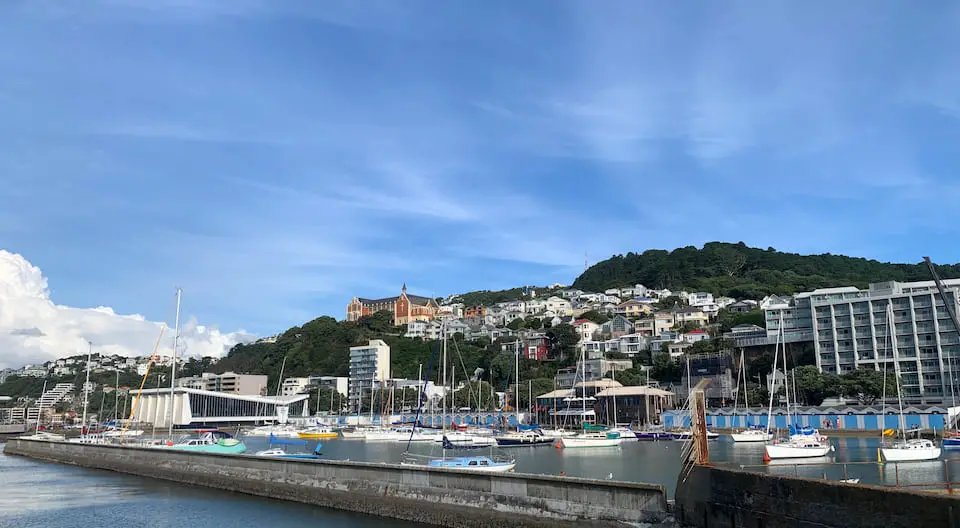
Everybody will agree that Wellington is a pretty town. There is a saying that nothing can beat Wellington on a good day. The city is located on hills which smoothly slide to the sea. Wellington Harbour is phenomenal but quiet and homely at the same time.
In addition to the city’s natural beauty, Wellington is renowned for its architecture, which reflects its history over the past 150 years. You will see many villas built in Art Deco style. Besides, there are some heritage buildings from the Victorian era. It’s impressive that these wooden constructions are still alive. Wellington houses were mainly built of wood compared to the stone buildings of Canterbury and Otago.
6. Culture, events and things to do
Besides going to coffee shops, there is so much to do in Wellington! In the end, it’s called the coolest capital in the world. Wellington is the richest city in New Zealand when it comes to culture. It’s the home of many art galleries, museums, theatres, concerts, festivals, etc.
Many New Zealanders and Kiwis move to Wellington to pursue their career in arts. Welly has excellent opportunities for studying arts across various institutions.
7. A young city with students and professionals
When you land in Wellington, you will realize how young the city is. It’s a lively place! Central streets are full of cafes, bars, and restaurants with a young audience.
And it’s not surprising considering the fast pace of the city and the great career opportunities local employers are offering. Ultimately, many young professionals relocate to Wellington because they have received an attractive job offer.
Not to mention the fantastic study opportunities in the universities of Wellington that attract thousands of local and international students. Victoria University of Wellington is one of the best in the city but also nationwide.
8. Compact city
Wellington is a very small city for being a capital. You don’t even need a car to get around CBD. If you compare the size of Wellington and Christchurch, they are like two different worlds. Just the urban area of Christchurch takes up about 295.15 km2, while Wellington is only 112.36 km2!
9. Location
Wellington lies at the bottom of the North Island and serves as a location for the South Island. You can take a ferry and in about 3 hours be in Picton, South Island. Alternatively, you can fly, which might be even cheaper and more convenient, but you can’t take your car with you.
Therefore, Wellington is the best of both worlds, where you can explore the North Island but also jump to the South Island if you want to.
10. Vibrant coffee culture

The coffee culture of Wellington is known nationwide. Wellington has over 300 cafés throughout the city, more per capita than in New York City! It’s a truly unique place to enjoy the cafe culture.
Check out my guide on the best cafes in Wellington, you deserve the best of the best.
11. Developed public transport
Wellington has several public transport options, including buses and trains. The best way to get around is to take a bus, which is often coming every 10 minutes. To check the schedule, you can use the Metrolink website, which is informative and reliable.
Also, get a Snapper card to save a buck. If you want to travel outside of the CBD, there are trains that go to suburbs and cities like Lower Hutt. So, overall, you can get pretty much everywhere with public transport if you live in Wellington or its suburbs.
12. Diversity in nature and landscape
Wellington has plenty of nature to impress anyone. Rolling hills, coast, forests, lush greenery everywhere you look. It’s a great place to soak in juicy New Zealand’s nature. Just check out Mount Victoria, the most picturesque hill around.
Thanks to the coastal location, you can enjoy adventures like surfing and kitesurfing, but also simply swimming or sunbathing.
There is also a wonderful reserve to observe wildlife called ZEALANDIA. It’s an ecosanctuary located 10 minutes drive from central Wellington! Moreover, both locals and visitors enjoy Wellington Botanic Garden and the hikes that Mount Victoria offers.
Cons of living in Wellington
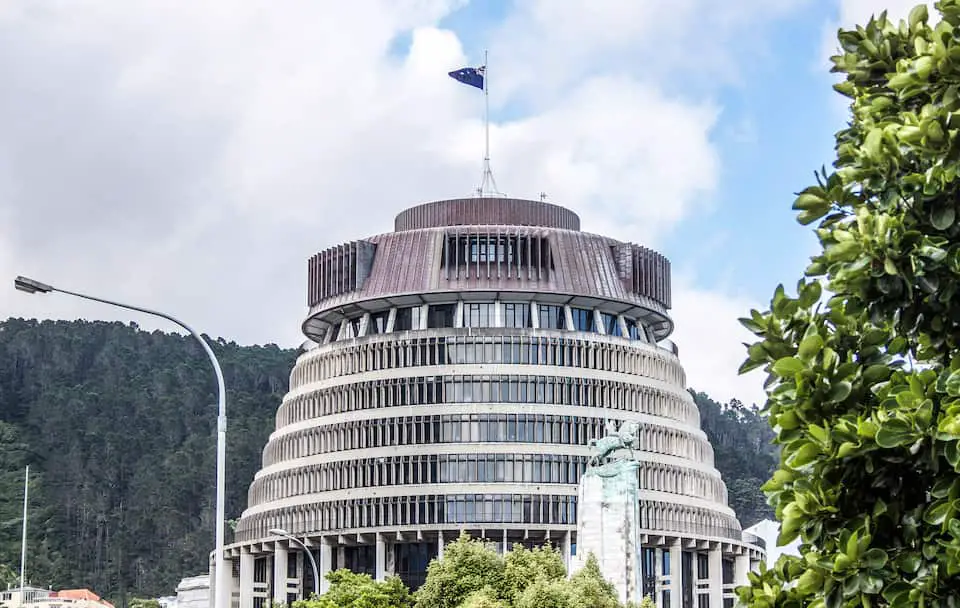
Now it’s the time to learn about less attractive aspects of living in Wellington. This city isn’t for everyone, so you might find your dream place in my guide about the best places to live in New Zealand.
1. High cost of living
To compensate for high salaries, you need to pay a high price, so keep Wellington’s prices in mind. Wellington is the second most expensive city in New Zealand. In 2023, the average cost of living for a single is $5,044 and $8,566 for a family.
These numbers include things like rent, groceries, food & drinks, mobile, transport, entertainment, and bills. Moreover, rents in Wellington are rising quickly, so expect to spend a significant portion of your salary on housing.
That said, many young people share houses or apartments in Wellington (flatting) to save money on rent. Rooms rates are from $200 to $400 per week.
But if living in a stand-alone house or townhouse is your priority, then you can expect to pay at least $600 per week.
On average, rent in Wellington is around $984 per week for a three-bedroom home in the center. Living in a suburb will save you a significant amount of money, as such houses are rented for $650 per week on average.
Here are some average rent prices for different property sizes in Wellington:
| 3 bedroom house in the center | $2,518 |
| 1 bedroom apartment/suite in suburbs | $2,261 |
| 3 bedroom house in the center | $4,222 |
| 3 bedroom house in suburbs | $3,465 |
Keep in mind any additional expenses that include gym memberships, clothing, dentist appointments, school expenses, subscriptions to streaming platforms, gifts, donations to charity, any savings, and KiwiSaver contributions.
To learn more about the cost of living, you can read our articles like: Cost of living for a family in NZ, cost of food in NZ.
2. High house prices
Wellington stands very close to Auckland when it comes to house prices. According to the largest national database, the average house price in Wellington City is $973,520 as of April 2023. It corresponds to the change of -3,4% in the last 3 months.
The most expensive suburb in Wellington is Seatoun, with a median house price of $1,776,500.
That said, fortunately for buyers, the home prices in New Zealand’s capital are significantly down in 2023. To be precise, 14.4% down in March 2023 compared to the same period in 2022. In the image below, you can see how house value has changed from 2014 to 2023.
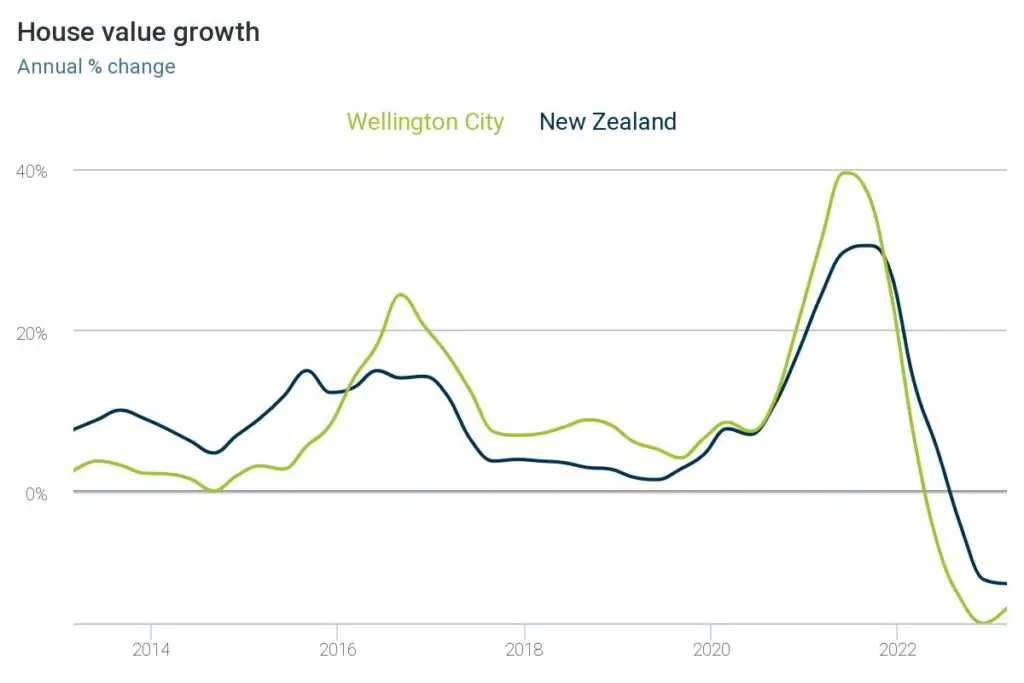
Read the full guide on house prices in Wellington provided by Opespartners.co.nz.
3. Poor housing standards
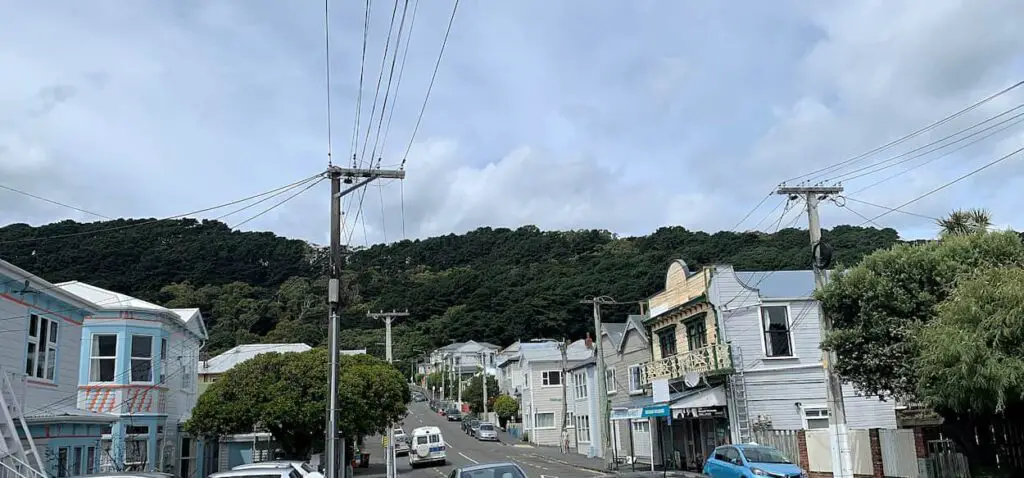
Houses in Wellington aren’t in the best condition despite their high prices. This is mainly due to their age, as the majority of homes are from 70-es and 80-es of the last century. All these old houses give Wellington the atmosphere of an old, stylish city, which is often compared to San Francisco.
The poor standards shine when you look at the isolation of older houses and how warm they are. To be honest, they aren’t warm at all, as some buildings have single-window glazing and the large majority don’t have central heating.
The more layers of glass a window has, the better the energy efficiency of your home is.
4. Parking difficulties
Since Wellington is such a compact city, there are many buildings on a small piece of land. Therefore, parking is challenging. In New Zealand, including Wellington, almost everyone owns a car, so imagine everyone wants to park on that tiny street?!
5. A lot of rain and wind
Wellington isn’t known to have an amazing climate, in fact, it has more rain and wind than most main cities of New Zealand. Winters generally are cold and wet, while summers are comfortable yet, can still be pretty windy.
If you want to enjoy mild but calm weather, try Christchurch or Nelson instead.
6. Terrible public transport
Yes, I know I mentioned already that public transport is great in Wellington, but it’s bad at the same time. Why, you ask? The delays are real, fares are high, and it can be crowded at times. In fact, the reliability of service is ranked at 69%. Hills and tiny roads don’t make the job of bus drivers easier.
Nonetheless, Welly public transport is significantly better than the one you will find in other parts of New Zealand.
7. Hustle of the big city
Wellington is the third largest city in New Zealand. Therefore, you will generally see more things happening here. The CBD is the most active place, where you will see plenty of commuters every day. The traffic can be hectic in peak hours.
Besides, the city is tiny and built on hills making everything 200% more intense than in widespread Christchurch or Auckland.
8. Lots of traffic
Yeah, yeah, compared to Auckland, Wellington’s traffic is nothing, but still, it’s something. Especially in rush hours (before and after work), you might spend some precious time in lines on roads whether you are in a bus or private vehicle.
9. Social issues and begging
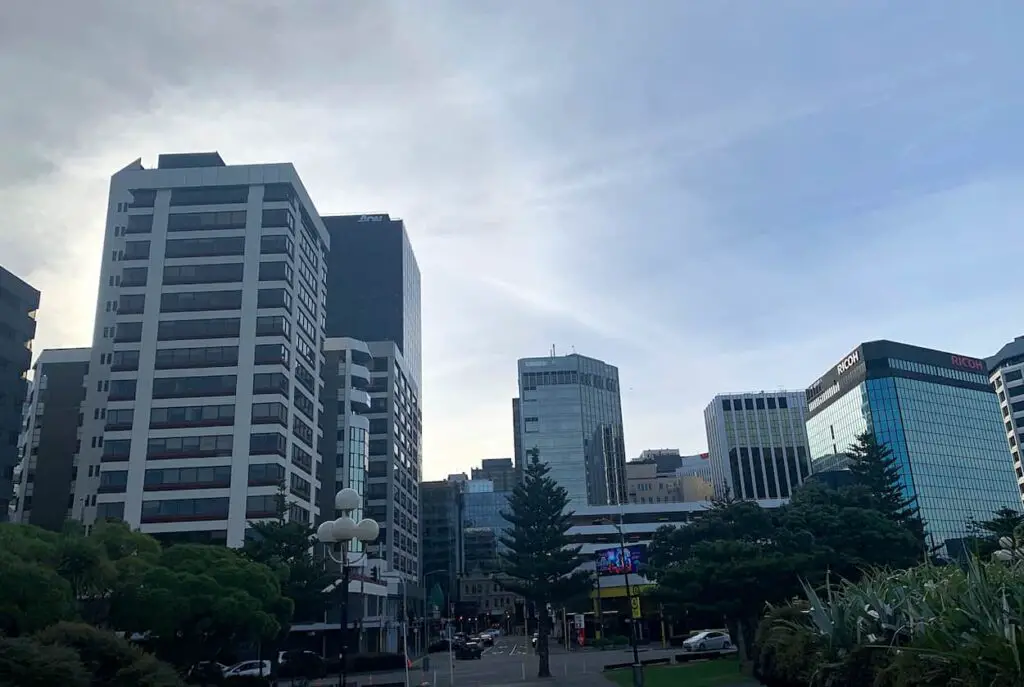
The Wellington CBD, and especially the area around Courtenay Place, is famous for suspicious characters. You might see drunk people even during the day and several individuals begging for money. This gives quite a bad impression.
That said, it’s definitely an issue of any large city, but I noticed that Wellington has more social issues on the streets than Christchurch does.
10. Earthquakes
Wellington lies in a geographical area that is prone to earthquakes because it lies on the point where two tectonic plates meet. These are Australian and Pacific plates. New Zealand’s most powerful earthquake struck Wellington Region on the 23rd of January 1855, killing 9 people.
However, earthquakes are problematic in other parts of New Zealand, too, and Wellington has seen fewer fatalities than other cities, so don’t be discouraged by it.
11. It’s not true New Zealand
New Zealand isn’t about skyscrapers or city living; it’s about having space, being close to nature, and provinciality. While you will experience all the culture and art New Zealand’s capital has to offer, Wellington doesn’t represent how typical Kiwis are living.
New Zealand it’s about provinciality, simplicity, and the local community. It can be best seen in smaller cities, but even better in towns. Also, the South Island is the best to experience a remote Kiwi lifestyle.

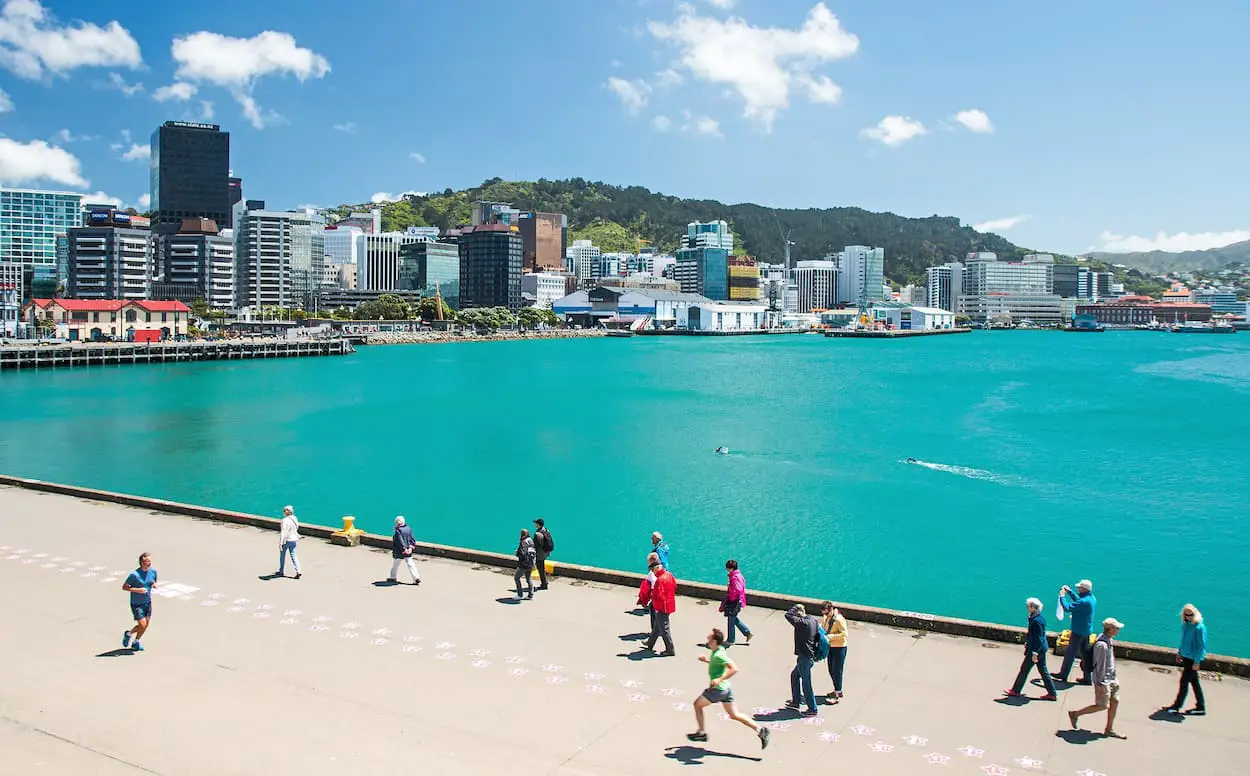
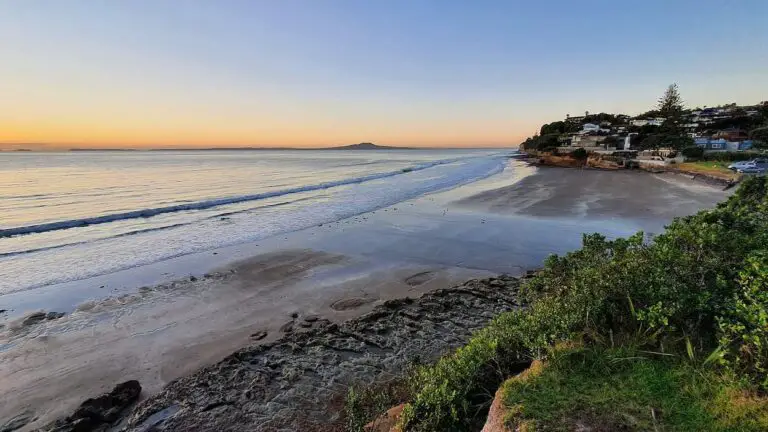

![Cost of Food in New Zealand: How Much To Budget? [2024]](https://simplenewzealand.com/wp-content/uploads/2023/01/Depositphotos_363854088_L-768x512.jpg)
